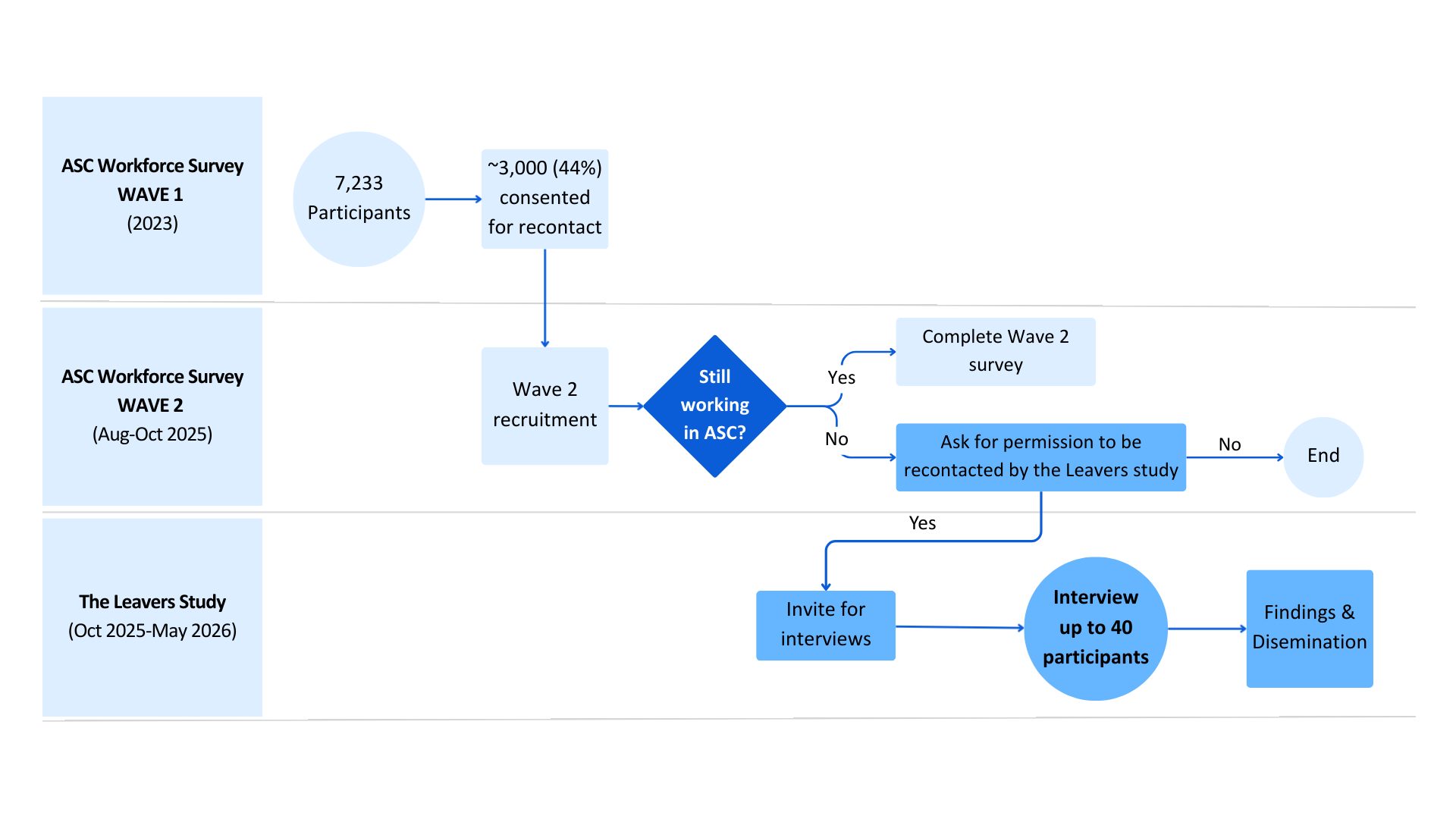Behind the decision to leave: understanding why people stop working in adult social care and social work (The Leavers Study)
Aims
The Leavers Study will explore why people have left the adult social care (ASC) sector, how this varies by occupation groups, and what motivates their choices in new employment or career paths.
Research Questions
What were the primary factors influencing people’s decisions to leave adult social care or social work? Which factors were most significant, and what could have been done to convince them to stay?
Where do individuals who leave the ASC workforce typically go, and what motivates their choice of new employment or career paths?
How and why do the reasons for leaving the ASC workforce vary across roles (e.g. care workers, personal assistants and social workers), demographic groups (age and ethnicity), and care settings (e.g. domiciliary care, residential care)?
Methods
This study will undertake qualitative interviews with people who previously worked in front line roles but have left the sector in the last two years. Figure 1 shows our recruitment process for this study.
Figure 1. Flow diagram for the Leavers Study
In 2023, the Department of Health and Social Care (DHSC) commissioned a national ASC Workforce Survey to better understand the care work-related quality of life (CWRQoL) and wellbeing of the ASC workforce in England. Wave one survey was conducted between August and October 2023 by IPSOS and partners, included 7,233 participants working in a full range of settings and roles. The published findings indicate disparities in CWRQoL between roles.
In August-September 2025, IPSOS are conducting the wave two survey, recontacting the circa 3000 wave one participants who consented to further research. Only those still working in ASC will be eligible to complete the wave two survey. Participants who have left the sector will be asked for permission to keep their contact details for further research until August 2027. Those who previously worked in direct care roles, such as social workers, residential care workers (including assistants), domiciliary care workers (including assistants), and personal assistants, will form the eligible sampling frame for this study.
This study aims to conduct up to 40 interviews, recruiting 8-10 participants from each of the four key social care roles: social workers, residential care workers (including assistants), domiciliary care workers (including assistants), and personal assistants.
Policy Relevance and Dissemination
The findings of this work would be relevant to a wide range of policy areas, including ministerial priorities such as the Fair Pay Agreement, the Care Workforce Pathway, ongoing work around funding of training and qualifications, professionalisation, and ultimately building towards a National Care Service.
Contact: For questions or further information about this study, please reach out to the research team (wenjing.zhang@kcl.ac.uk)
Funding: This research is being co-funded by the National Institute for Health and Care Research (NIHR) Policy Research Programme (NIHR206121 – NIHR Policy Research Unit in Health and Social Care Workforce) and NIHR Health and Social Care Delivery Research Programme funded Social Care Workforce Research Partnership (NIHR159860). The views expressed here are those of the authors and not necessarily those of the NIHR or the Department of Health and Social Care.

